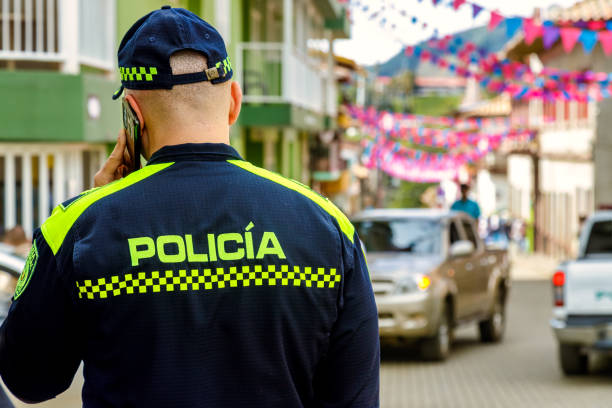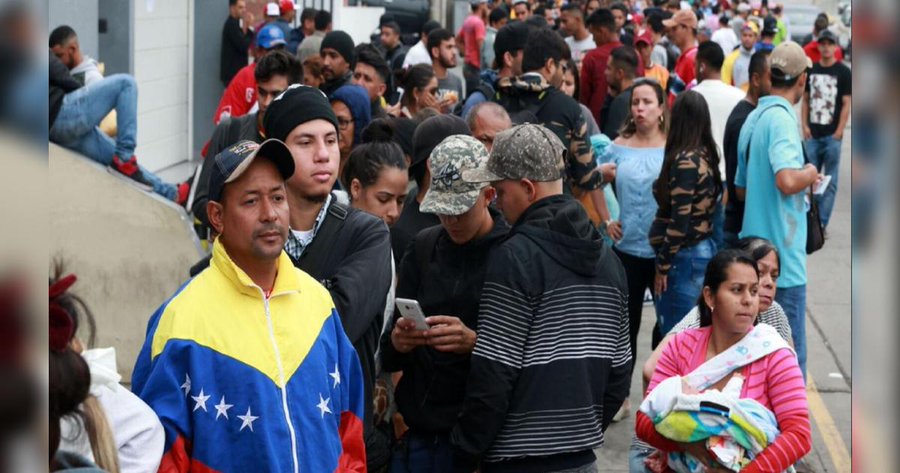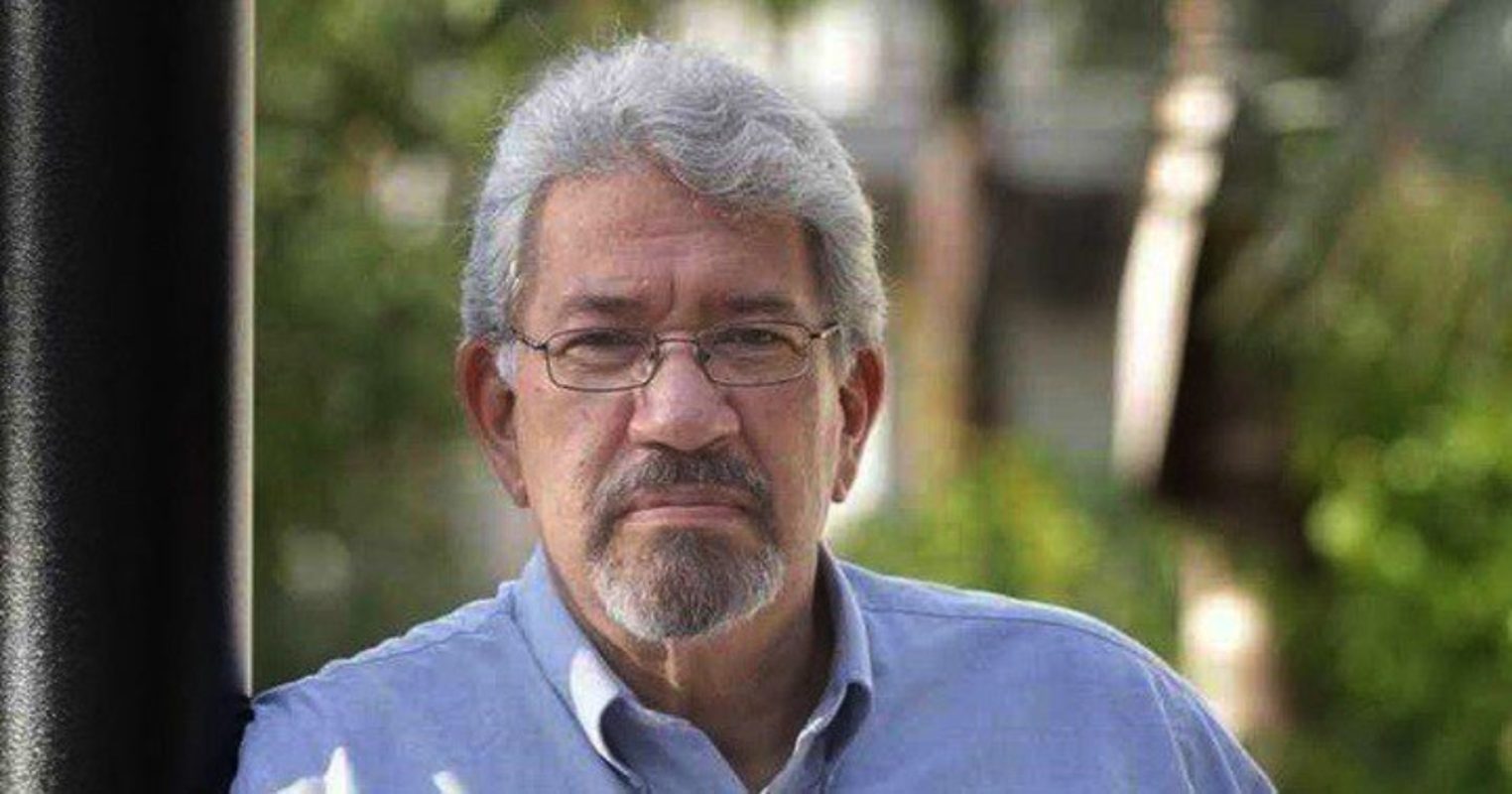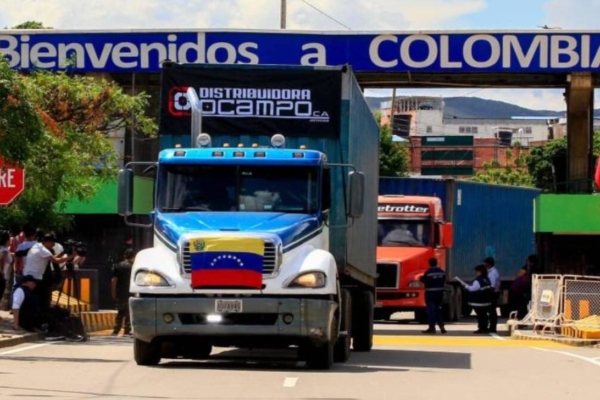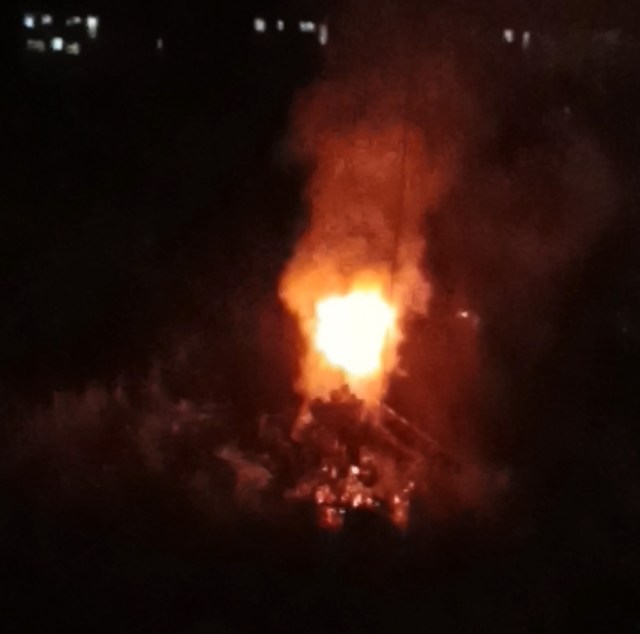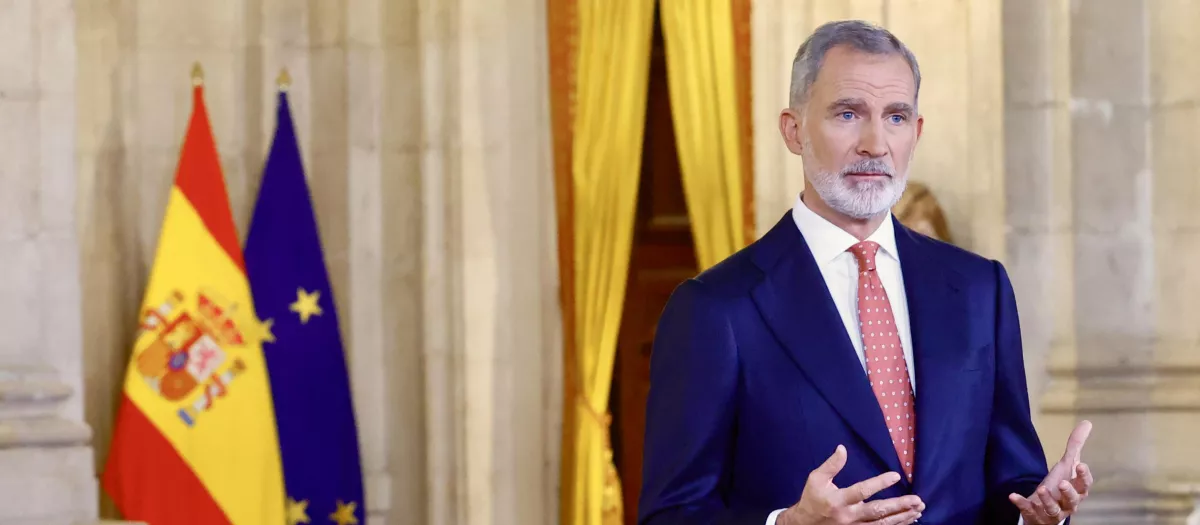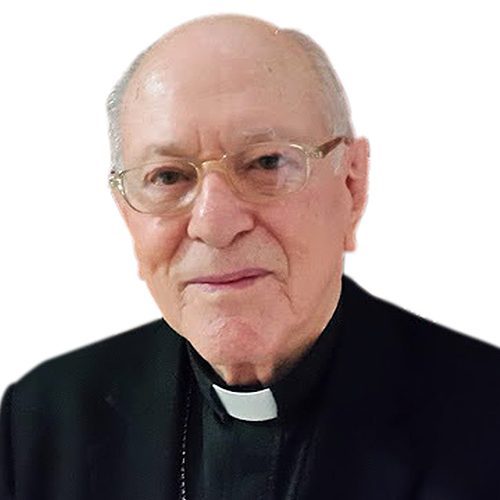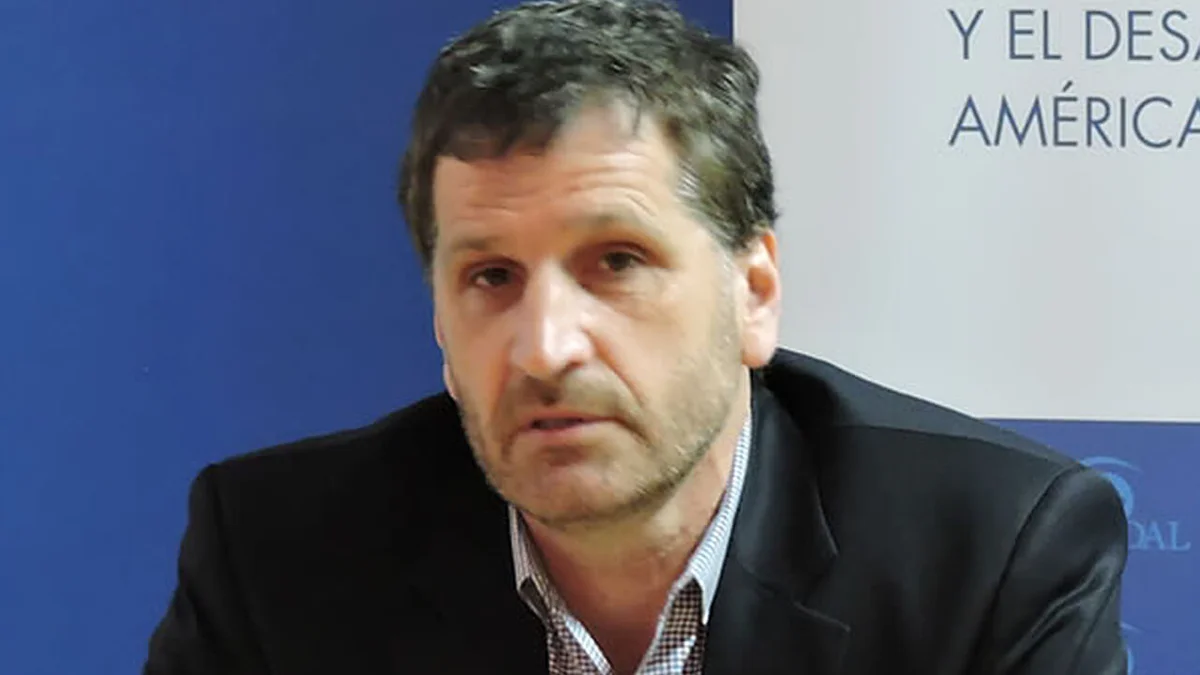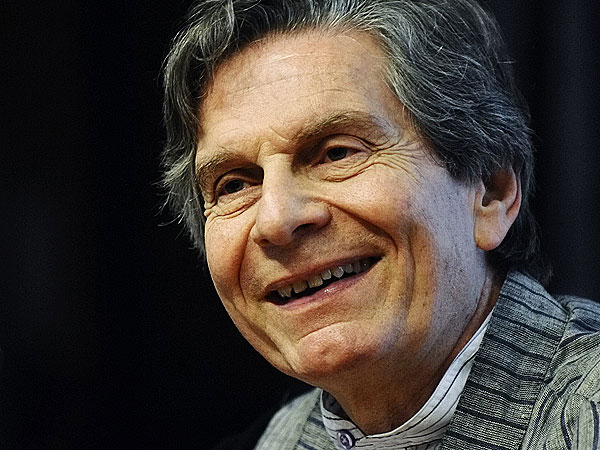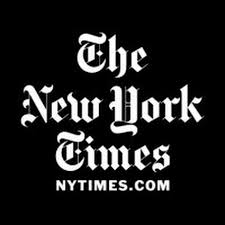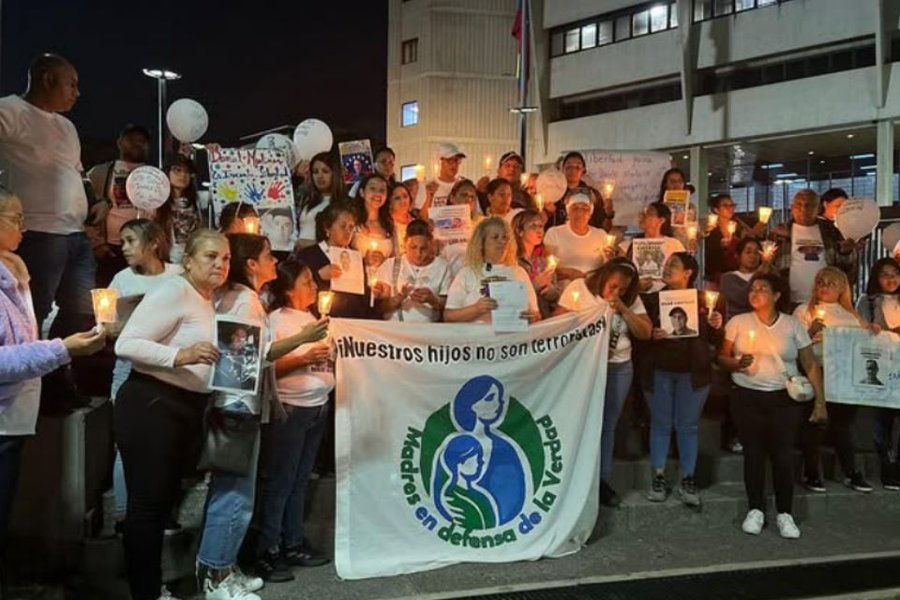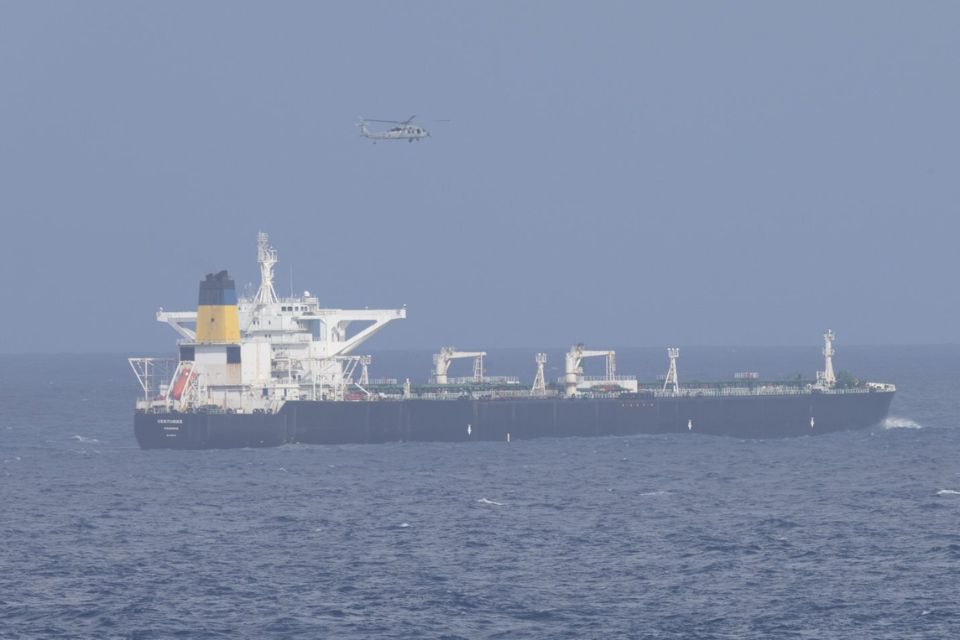El presidente venezolano defiende la legitimidad de su Gobierno y advierte de que los manifestantes únicamente persiguen expulsarlo del poder
Editorial del presidente de Venezuela en ‘The New York Times’
El presidente de Venezuela Nicolás Maduro ha denunciado en un editorial del diario The New York Times que el único fin de quienes están protagonizando las protestas en su país es expulsarlo del poder. En su articulo, titulado Venezuela: Una llamada al diálogo, el sucesor de Hugo Chávez, además de abogar por una salida pacífica a la crisis venezolana, defiende la legitimidad democrática de su Gobierno, enumera las medidas que ha adoptado para tratar de salir del caos político, económico y social en el que está sumida la nación y trata de tender puentes a la Administración estadounidense ante la amenaza de sanciones, sin olvidarse de recordar que la oposición por la que se ha decantado Washington representa a un ínfimo porcentaje de la población y que muchos de sus integrantes estuvieron relacionados con el golpe de Estado de 2002 que apoyó el Ejecutivo que entonces presidía George W. Bush.
“Las recientes protestas en Venezuela ha copado los titulares de la prensa internacional. Gran parte de la cobertura extranjera ha distorsionado la realidad que se vive en mi país y los hechos que rodean a los acontecimientos”. Así comienza el editorial de Maduro en el Times que se publica cinco días después de que el líder opositor Leopoldo López publicara el suyo en el mismo diario. Mientras López recriminaba la falta de libertades y la brutal represión que el Gobierno venezolano está ejerciendo sobre los estudiantes y el resto de los manifestantes, el presidente de Venezuela asegura que esas denuncias sobre la deficiencia democrática de su Administración pertenecen a una «corriente de opinión que se contradice con los hechos». “Las protestas antigubernamentales están siendo lideradas por miembros de los segmentos más pudientes de la sociedad que lo único que persiguen es revertir los logros de un proceso democrático que ha beneficiado a la gran mayoría de la población”, asegura Maduro.
El mandatario acusa a los manifestantes de “ataques a clínicas, de quemar una universidad en el Estado de Táchira y de lanzar cocteles Molotov y piedras a los autobuses» y de otras agresiones a instituciones públics como la fiscalía y el Tribunal Supremo.. “Los que protestan tienen un objetivo claro: la expulsión inconstitucional del Gobierno elegido democráticamente”, sostiene Maduro, quien los señala como “directamente responsables” de “al menos la mitad” de las 36 víctimas mortales que se han cobrado las protestas. En su editorial, sin embargo, no se hace alusión a las denuncias de tortura, abusos, detenciones arbitrarias, indefensión y violaciones de los derechos humanos contra los opositores al gobierno que ha documentado Amnistía Internacional en un informe que ha presentado este martes.
Maduro reconoce la precaria situación económica que vive su país y la responsabilidad de miembros de las Fuerzas de Seguridad en determinados actos de violencia para recordar que su Gobierno ha creado una comisión para investigar los incidentes en las protesta -Una institución que la oposición no reconoce por estar integrada únicamente por miembros afines al chavismo-.
El presidente venezolano subraya que ha aceptado “las recomendaciones de Unasur para iniciar un diálogo con la oposición” y envía un mensaje conciliatorio a la Administración Obama recordando que le ha transmitido sus “deseos de volver a intercambiar embajadores”. Hace un mes, Maduro designó a Max Arveláez, un hombre de confianza de Chávez y del actual jefe del Estado de Venezuela, como representante de Venezuela ante la Casa Blanca, un nombramiento que aún no ha sido aceptado por Washington.
No obstante, Maduro reprocha el respaldo que este país, a su juicio, esta brindando a la oposición a su Gobierno. “En EE UU, los manifestantes han sido descritos como pacíficos, mientras que se dice que el Gobierno de Venezuela los está reprimiendo. De acuerdo con esta narrativa, el Gobierno norteamericano se estaría alineando con el pueblo venezolano, pero en realidad se está alineando con el 1% del total de la población que quiere arrastrar a nuestra nación a la época en la que el otro 99% no tenía cabida en la vida política”, sostiene.
El dirigente venezolano llama también la atención sobre una propuesta de ley bipartita que prevé sanciones individuales para miembros del Gobierno y empresas afines al chavismo, así como una partida de 15 millones de dólares de ayuda a la oposición que la semana pasada se presentó ante el Senado y que se une a una petición, también por parte de ambos partidos, que se dirigió al presidente Barack Obama en la que se le instaba a aplicar medidas de castigo directamente. “No olvidemos que muchos de los que apoyaron el desalojo del Gobierno democráticamente elegido en 2002 son los que están liderando las protestas hoy en día”, advierte Maduro.
Tal y como se encabeza su editorial, Maduro termina su texto haciendo un llamado a la entente.: “Venezuela necesita paz y diálogo para seguir adelante. Damos la bienvenida a quien de manera sincera quiera ayudarnos a alcanzar esa meta”.
El artículo fue hecho público la noche de este martes en idioma inglés en la página nytimes.com

CARACAS, Venezuela — THE recent protests in Venezuela have made international headlines. Much of the foreign media coverage has distorted the reality of my country and the facts surrounding the events.
Venezuelans are proud of our democracy. We have built a participatory democratic movement from the grass roots that has ensured that both power and resources are equitably distributed among our people.
According to the United Nations, Venezuela has consistently reduced inequality: It now has the lowest income inequality in the region. We have reduced poverty enormously — to 25.4 percent in 2012, on the World Bank’s data, from 49 percent in 1998; in the same period, according to government statistics, extreme poverty diminished to 6 percent from 21 percent.
We have created flagship universal health care and education programs, free to our citizens nationwide. We have achieved these feats in large part by using revenue from Venezuelan oil.
While our social policies have improved citizens’ lives over all, the government has also confronted serious economic challenges in the past 16 months, including inflation and shortages of basic goods. We continue to find solutions through measures like our new market-based foreign exchange system, which is designed to reduce the black market exchange rate. And we are monitoring businesses to ensure they are not gouging consumers or hoarding products. Venezuela has also struggled with a high crime rate. We are addressing this by building a new national police force, strengthening community-police cooperation and revamping our prison system.
Since 1998, the movement founded by Hugo Chávez has won more than a dozen presidential, parliamentary and local elections through an electoral process that former American President Jimmy Carterhas called “the best in the world.” Recently, the United Socialist Party received an overwhelming mandate in mayoral elections in December 2013, winning 255 out of 337 municipalities.
Popular participation in politics in Venezuela has increased dramatically over the past decade. As a former union organizer, I believe profoundly in the right to association and in the civic duty to ensure that justice prevails by voicing legitimate concerns through peaceful assembly and protest.
The claims that Venezuela has a deficient democracy and that current protests represent mainstream sentiment are belied by the facts. The antigovernment protests are being carried out by people in thewealthier segments of society who seek to reverse the gains of the democratic process that have benefited the vast majority of the people.
Antigovernment protesters have physically attacked and damaged health care clinics, burned down a university in Táchira State and thrown Molotov cocktails and rocks at buses. They have also targeted other public institutions by throwing rocks and torches at the offices of the Supreme Court, the public telephone company CANTV and the attorney general’s office. These violent actions have caused many millions of dollars’ worth of damage. This is why the protests have received no support in poor and working-class neighborhoods.
The protesters have a single goal: the unconstitutional ouster of the democratically elected government. Antigovernment leaders made this clear when they started the campaign in January, vowing to create chaos in the streets. Those with legitimate criticisms of economic conditions or the crime rate are being exploited by protest leaders with a violent, antidemocratic agenda.
A very small number of security forces personnel have also been accused of engaging in violence, as a result of which several people have died. These are highly regrettable events, and the Venezuelan government has responded by arresting those suspected. We have created a Human Rights Council to investigate all incidents related to these protests. Each victim deserves justice, and every perpetrator — whether a supporter or an opponent of the government — will be held accountable for his or her actions.
In the United States, the protesters have been described as “peaceful,” while the Venezuelan government is said to be violently repressing them. According to this narrative, the American government is siding with the people of Venezuela; in reality, it is on the side of the 1 percent who wish to drag our country back to when the 99 percent were shut out of political life and only the few — including American companies — benefited from Venezuela’s oil.
Let’s not forget that some of those who supported ousting Venezuela’s democratically elected government in 2002 are leading the protests today. Those involved in the 2002 coup immediately disbanded the Supreme Court and the legislature, and scrapped the Constitution. Those who incite violence and attempt similar unconstitutional actions today must face the justice system.
The American government supported the 2002 coup and recognizedthe coup government despite its anti-democratic behavior. Today, the Obama administration spends at least $5 million annually to support opposition movements in Venezuela. A bill calling for an additional $15 million for these anti-government organizations is now in Congress. Congress is also deciding whether to impose sanctions on Venezuela. I hope that the American people, knowing the truth, will decide that Venezuela and its people do not deserve such punishment, and will call upon their representatives not to enact sanctions.
Now is a time for dialogue and diplomacy. Within Venezuela, we have extended a hand to the opposition. And we have accepted the Union of South American Nations’ recommendations to engage in mediated talks with the opposition. My government has also reached out to President Obama, expressing our desire to again exchange ambassadors. We hope his administration will respond in kind.
Venezuela needs peace and dialogue to move forward. We welcome anyone who sincerely wants to help us reach these goals.

